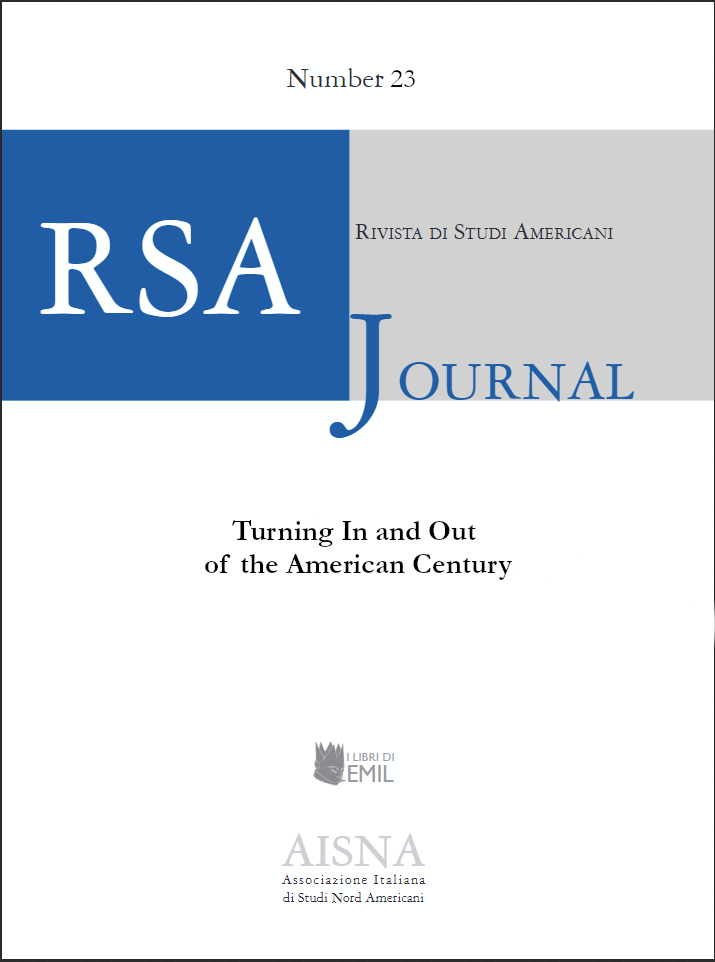What the Times Require
American Poetry at the Turn of the Twenty-First Century
DOI:
https://doi.org/10.13135/1592-4467/8709Keywords:
American poetry, twenty-first century, Walt WhitmanAbstract
The essay is an attempt to read the turn of the twenty-first century in the U.S. by investigating the subjective responses by a number of poets and novelists to events and aspects of the time. Focusing on the year 2000, in the first part I concentrate on a poem by Lucille Clifton and a novel by Don DeLillo, inferring from them the emergence of a post-humanist agenda but also the shared search for a new time to be created in the twenty- first century by its folding back upon the previous turn-of-century and re-imagining an American life project that had been left incomplete in the twentieth century. In the second part, I explore the name “America” and the narratives it is associated with in three recent, and emblematic, poems: Alicia Ostriker’s “Ghazal: America” (2012) and Richard Blanco’s “América” (1998) and “One Today” (2013). I argue that since Walt Whitman, U.S. poetry has taken “America” as “the centre and the axis of the whole,” i.e. the very place through which to “investigate the causes, growths, tallymarks of the time – the age’s matter and malady.”
Downloads
Published
Issue
Section
License
RSAJournal will apply a CC BY 4.0 license to all its contributions starting with issue 37 (2026). Previous issues are licensed under a CC BY-NC-ND licence.





